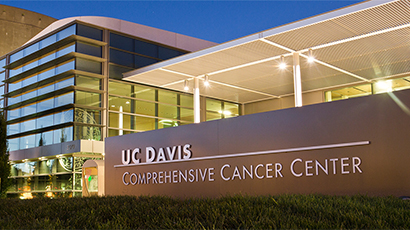UC Davis Comprehensive Cancer Center clinical scientist Chengfei Liu is on a mission to improve treatment for prostate cancer and a new federal grant will help his research.
Liu, an assistant professor in the Department of Urologic Surgery, was recently awarded a $1.4 million grant from the Department of Defense Congressionally Directed Medical Research Program. He aims to explore why some advanced prostate cancer is resistant to immunotherapy and to develop new possible avenues for treatment.
Prostate cancer remains lethal in advanced cases
Prostate cancer is diagnosed more than any other type of cancer in men and is the second leading cause of cancer related deaths in men, next to lung cancer.
Over the past decades, new advances in immunotherapy have led to promising discoveries regarding the immune system and how it can be harnessed to treat cancer, including prostate cancer.
For instance, preclinical research suggested that the standard prostate cancer-fighting drug enzalutamide may work better when combined with the immunotherapy drug atezolizumab, which fuels the body’s T cells to kill cancer cells.
Unfortunately, past clinical trials using this drug combination failed to extend the overall survival in late-stage prostate cancer patients and the underlying mechanisms are still elusive.
“We will provide new insights into the role of immune checkpoint inhibitors, such as atezolizumab, with the goal of developing new immune therapeutic strategies that have great potential to increase efficacy of enzalutamide in lethal prostate cancer cases,” Liu said. “Our ultimate hope is that our research will translate into clinical trials.”
Some cancers thrive by shutting down the body’s immune response that otherwise would attack cancer cells. Liu explained that immune checkpoint inhibitors work by blocking certain cancer or immune cell surface proteins from binding with their partner proteins, thereby preventing them from interfering with the immune response mechanism.
The anticipated results of the study will provide a strong rationale to initiate clinical trials to treat prostate cancer patients by developing strategies to target signaling of a certain gene (CD200/CD200R) in the foreseeable future.
“Not only will our research help us gain knowledge of prostate cancer disease progression and understand the mechanisms of immunotherapy resistance, but it will also facilitate new strategy development to treat advanced prostate cancer,” Liu said.





